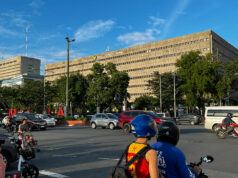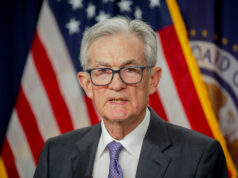Police power in the time of coronavirus

The issue is power. And the one under national scrutiny the past week has been this government’s use of that power in issuing its “enhanced community quarantine” measure to control the spread of the China-originating coronavirus.
Hence, under the quarantine order, most travel (land, air, sea) has been stopped or heavily regulated, schools and many businesses closed, and the island of Luzon essentially has been isolated from the rest of the county.
All this is under the use of the president’s police powers. And note that the word used is the “president” and not the “executive branch.” Under Article VII of the Constitution, the key phrase relevant here is that “executive power shall be vested in the President of the Philippines.” One individual, for which all other executive power emanates from.
The rationale for this is found in US analysis, from where we substantially got our constitutional system. Thomas Jefferson puts it this way: “For the prompt, clear, and consistent action so necessary in an Executive, unity of person is necessary” This has, as US Attorney General William Barr points out, “brought to our republic a dynamism and effectiveness that other democracies have lacked.”
One of those so-called inherent powers by which the executive power is supposed to “execute” is the aforementioned police power. And this has been defined by commentators as the “power of promoting public welfare by restraining and regulating the use of liberty and property” and has been described as the “most pervasive, the least limitable, and the most demanding of the three powers. The justification is found in the Latin maxims: salus populi est suprema lex, and sic utere tuo ut alienum non laedas.” (See Nachura’s Outline Reviewer).
The latter simply means: “Use your own property in such a way that you do not injure other people.”. It’s the first maxim that’s crucial. Many have mistranslated the phrase to say “the will of the people is the supreme law.”
Not so. It is actually “the health, safety or welfare of the public is the supreme Law.”
The difference is crucial and enormous. The first indicates the people’s volition as that which supremely rules all. The actual meaning declares that a purpose independent of the people’s will (i.e., their health, safety, and welfare) is that which governs us. Hence, what is necessarily good for the people is something they may not consciously will or desire but still must logically or rationally be achieved.
Tie this up with that profoundly important phrase in the Constitution’s Preamble: the common good, which is also not the sum total of the people’s desires or wants but rather the instrument for which each individual’s rational flourishing is achieved.
That flourishing is the responsibility of each and every Filipino. It demands self-responsibility, not dependence on government.
Nonetheless, because “men are no angels,” to paraphrase James Madison’s famous formulation, if people are not exercising self-responsibility, then there’s the “necessity of auxiliary precautions.” This means that though the people have “primary control on the government,” it is still necessary to “enable the government to control the governed; and in the next place oblige it to control itself.”
That phrase “control the governed” results in the consequence of police power as mentioned above. The president’s exercise of it is limited by the following: it must comply with the Constitution and legislation but also must have a lawful subject and lawful means.
In the case of the enhanced community quarantine, all those legal elements seemingly are complied with. Thus, as Princeton politics professor Keith Whittington asked: “can the government just close my favorite bar?” (Reason Magazine, 2020), the answer is yes.
Like Professor Whittington, we can also say that “we have always lived in a country in which political officials can order private businesses closed”; and that “dramatic measures to address the spread of disease have long been a part of those police powers, and we have long recognized that extraordinary circumstances could justify extraordinary state actions.”
But the question is not whether the enhanced community quarantine is constitutional or lawful but whether it’s the right thing to do. It’s doability and massive disruption to the economy, as well as impact on human dignity should have been deliberately determined.
One ponders if resorting to this abrupt and ill-prepared lockdown was avoidable. Other effective measures such as class suspensions, work from home, foreign travel bans, social distancing, declaration of public health emergency: all could have been implemented two or three weeks earlier. But No. Because, Filipinos perceive, this government was too wary to act and speak of the danger for fear of offending China.
Anyway, we are where we are.
And there’s a time and place for everything.
For now, this thought: we elect officials, we make laws, we habituate ourselves to democracy and the rule of law not for our feelings or tribalism but for precisely times like these. Hopefully, after getting through this we learn that.
Jemy Gatdula is a Senior Fellow of the Philippine Council for Foreign Relations and a Philippine Judicial Academy law lecturer for constitutional philosophy and jurisprudence.
https://www.facebook.com/jigatdula/
Twitter @jemygatdula



